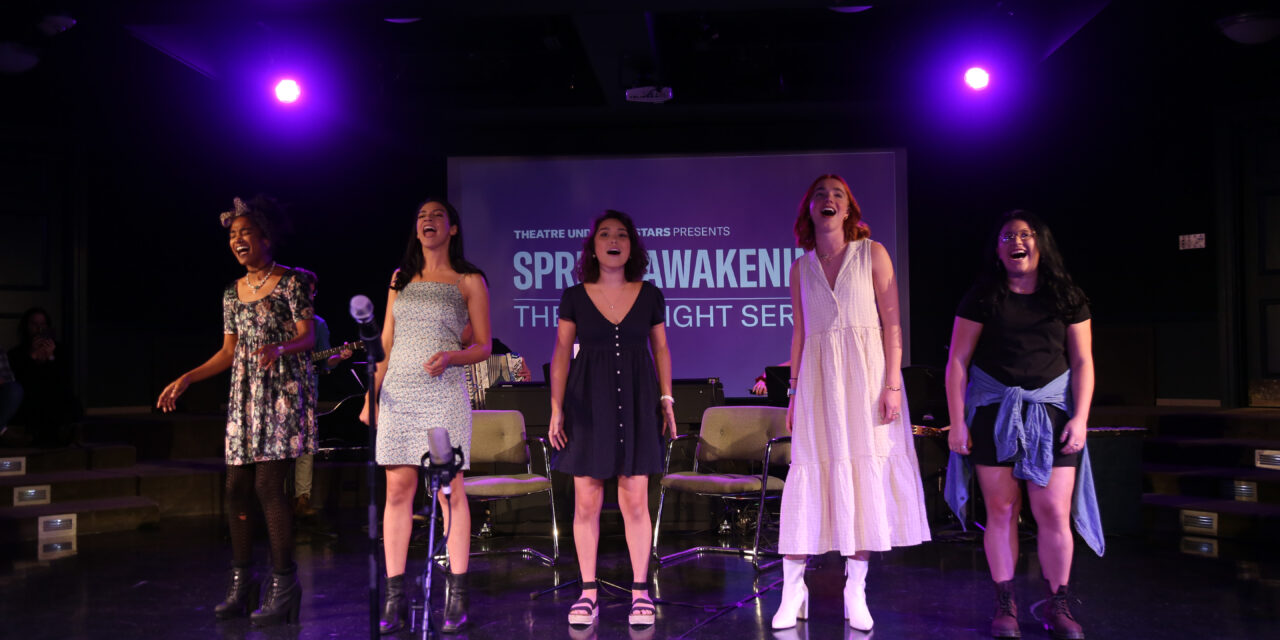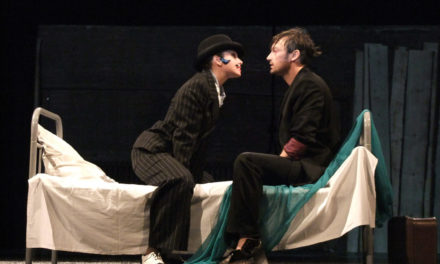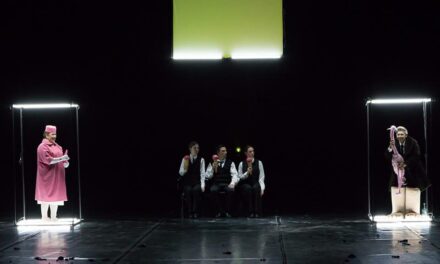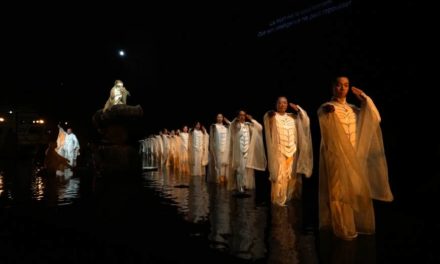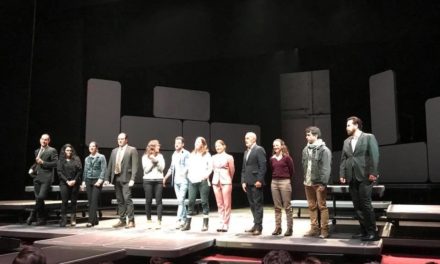Teenagers dealing with sex, suicide, abusive parents, and queer love might not seem like typical characters in musical theatre, but young people going through these common struggles of growing up are exactly who audiences can expect to see in Spring Awakening at Theatre Under The Stars (TUTS). The new production directed by Taibi Magar runs October 8 through 20 in Houston, Texas.
Based on the 1891 play by Frank Wedekind, Spring Awakening has music by Duncan Sheik and book and lyrics by Steven Sater. The show opened on Broadway in 2006 and was the hit show of the season, winning eight Tony Awards and launching the careers of Jonathan Groff, Lea Michele, Skylar Astin, John Gallagher Jr., and Lilli Cooper. The show has arguably been one of the most iconic musicals of the 21st-century, already featuring a hit Broadway revival and being the subject of pop culture such as the short-lived television series Rise.
Spring Awakening follows a group of young teens as they struggle with coming-of-age in a community that keeps them in the dark even though they desperately want to be educated and learn more about the mysterious feelings materializing throughout their bodies. The musical’s central trio—Melchior, Wendla, and Moritz—all face some degree of tension from their curiosity, the pressure they face from adults and their understanding of the world around them. Despite being set in the late 19th-century, the musical’s engagement with difficult themes such as teenage sexuality is as current now as they were when Wedekind’s play first appeared. While the musical touches on many themes facing youth today, perhaps the most common through-line revolves around sex and sexuality.
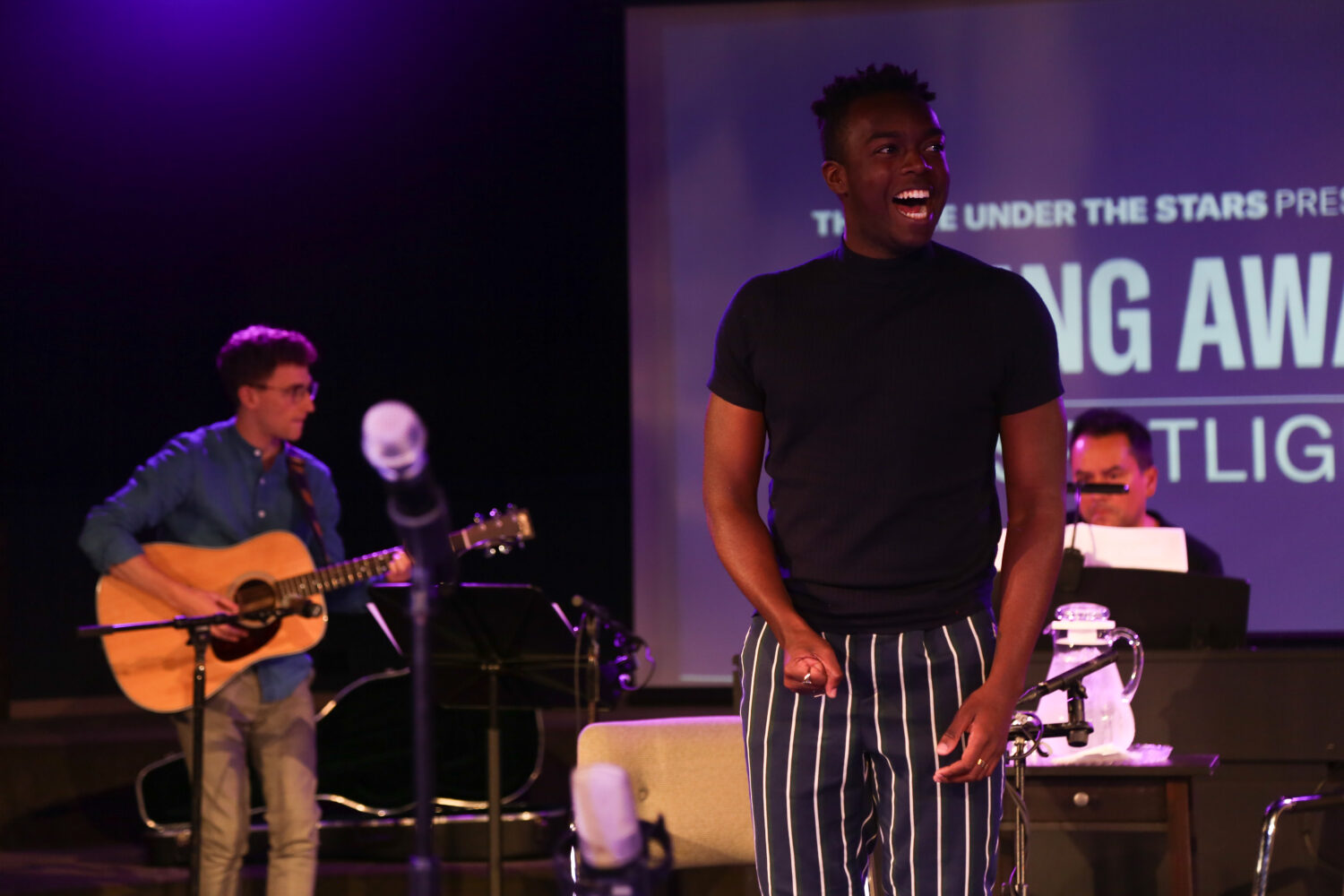
Theatre Under The Stars Spotlight: Spring Awakening. Wonza Johnson in Spring Awakening. Photo credit: Erick Velazquez.
The relevance of Spring Awakening being performed in Texas should not be lost on anyone. Texas public schools notoriously don’t teach comprehensive sex education (unlike California, for instance). With the lack of education surrounding sexual health transpiring across the state, it should come as no surprise that our young people are misinformed if informed at all.
When I returned to the classroom full-time as a public high school teacher in Houston in 2018, the reality that Spring Awakening paints hit me from day one. While my students may have evolved considerably from the musical’s characters—Melchior and Wendla don’t exactly use Instagram and Snapchat—the struggles they face are not that different when it comes to sex and everything that comes from that loaded three-letter word.
For instance, Texas features the 5th highest teen pregnancy rate in the country and also has the highest amount of repeat teen pregnancies. As a teacher, I routinely come into contact with pregnant teens. These girls aren’t bad kids by any means. They didn’t look for trouble. And they didn’t go “asking for it.” What they did do was have sex. This doesn’t make them bad people and it doesn’t mean that they lack morals. It just means that they engaged in an activity that many teens engage in, but they did it in an uninformed way.
Or take the case of a student I had last school year who asked me if I had kids. When I told him I didn’t, he then asked me a rather explicit question about my own sexual practice and the preventive measures I take. I immediately told him this wasn’t something appropriate for me to discuss with my students, but on my way back to my desk something triggered in my brain—If I don’t have this conversation with this student then no one will. I knew this student was sexually active and needed to be aware of basic sexual health. And so I walked back to the student and I said: “I need you to know that those are not the only methods to not get pregnant.” We then had a brief but generative conversation that he had likely never had before in a school setting. Is this something a teacher should do? Did I break a rule? I’ll be honest—I don’t care. What I care about is educating my students and that’s just what I did.
Early this school year, another teacher on my campus posted the following status on Facebook:
The total dearth of comprehensive sex ed in this country and especially in this state is appalling. Today in class I overheard a girl say to her friend that the position a couple is in when they have sex determines if a girl gets pregnant. At the end of class, I called her up to my desk and sat her down and gave her a private five-minute mini lesson on basic female anatomy, the menstrual cycle, etc. She has had her period for years but had no idea what a uterus is, what ovulation is, that she has more than one opening in her vulva, etc. She thought she “peed” out her period and had no concept of a fertile period. I drew her multiple diagrams and gave her some websites to go to. She had so many questions for me. I have absolutely no embarrassment over discussing basic biology and sex with my students, but why is this on the English teacher?!?
EDITED TO ADD: And that’s just biology…the entire idea that female sexual pleasure is a thing and young women deserve to feel pleasure in their sexual experiences is so foreign to so many of them. It’s all about centering the male’s experience and the boy’s pleasure even though of course women and girls have a sexual drive as well and deserve to feel good during sex.
These stories may seem far fetched or special cases, but, based on my 12 years in the classroom, I can tell you that I accumulate stories like this so often that I can’t keep track. By and large, our youth don’t know much more today in 2019 than Melchior, Wendla, Moritz, and the other teens in Spring Awakening.
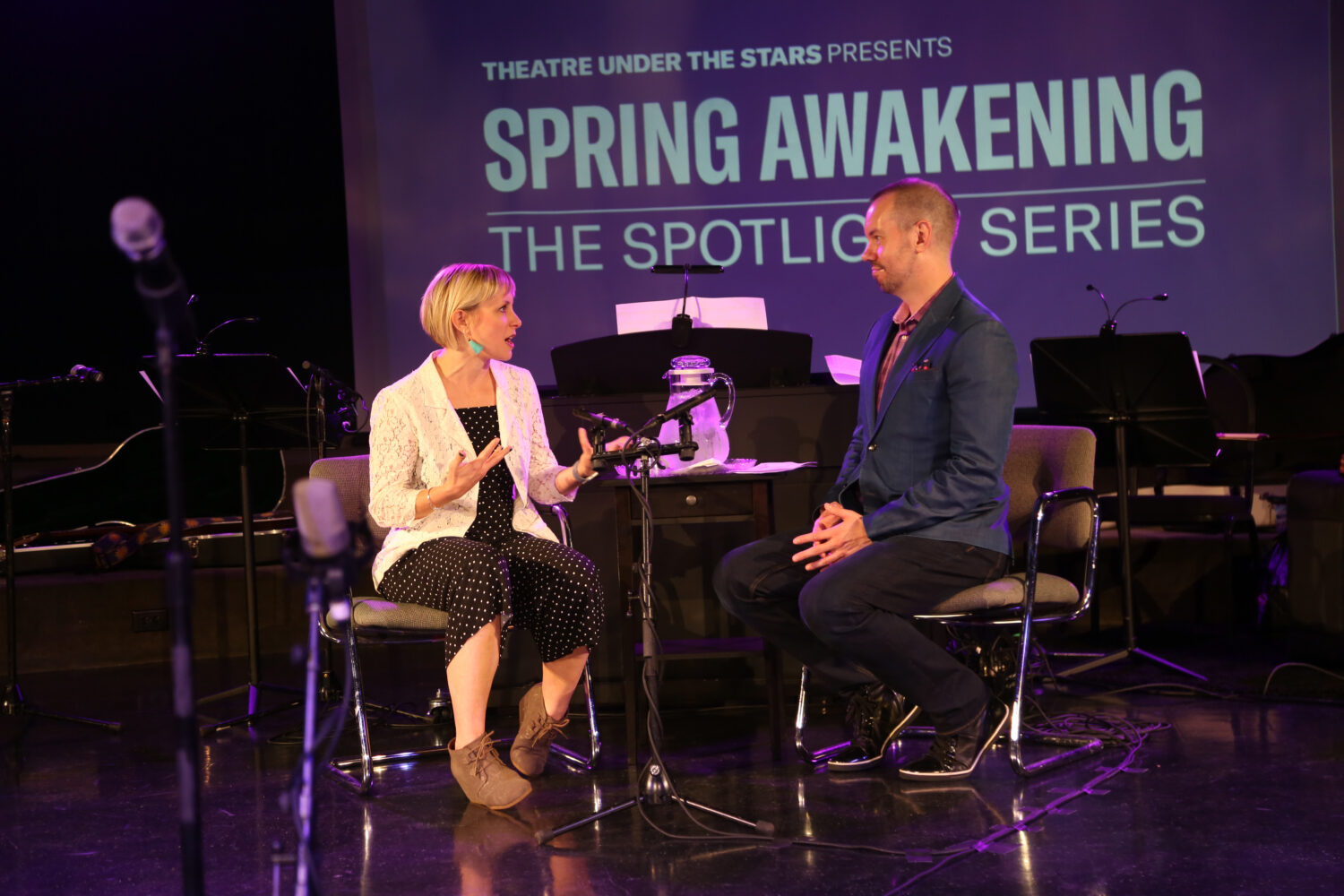
Marlana Doyle, Choreographer for Spring Awakening, and Dan Knechtges, TUTS Artistic Director. Photo credit: Erick Velazquez.
As the show demonstrates, teens are going to not only be curious about sex, but many of them are going to actually have sex. As such, Spring Awakening is a cautionary tale that may seem far fetched, but it’s not which is exactly why the show is a must-see. Teenagers need to see this show. Adults need to see this show. Teachers need to see it. Parents need to see it.
The fact that the show features one of the most exciting rock-infused scores of the last three decades is the icing on top. There’s a reason that Spring Awakening was a hit when it premiered and there is a reason it’s been a hit everywhere it’s played since. Now is the time to return to a contemporary classic musical. Now is the time to see how theatre can be escapist while also poignantly speaking to our current reality. Now is the time to listen to our youth and help them make informed decisions.
TUTS’ cast features Sophia Introna as Wendla, Wonza Johnson as Melchior, and Nathan Salstone as Moritz, Austin Colburn as Otto, Blake Jackson as Hanschen, Brian Mathis as The Adult Men, Liz Mikel as The Adult Women, Ana Yi Puig as Anna, Juliette Redden as Martha, Grayson Samuels as Georg, Raven Justine Troup as Ilse, Alex Vinh as Ernst, and Katja Rivera Yanko as Thea.
The production is choreographed by Marlana Doyle. The creative team is rounded out by Alex Navarro (Music Director), Ryan McGettigan (Set Designer), Jen Caprio (Costume Designer), Bradley King (Lighting Designer), Andrew Harper (Sound Designer), and J. Jared Janas (Wig Designer).
This post was written by the author in their personal capacity.The opinions expressed in this article are the author’s own and do not reflect the view of The Theatre Times, their staff or collaborators.
This post was written by Trevor Boffone.
The views expressed here belong to the author and do not necessarily reflect our views and opinions.

